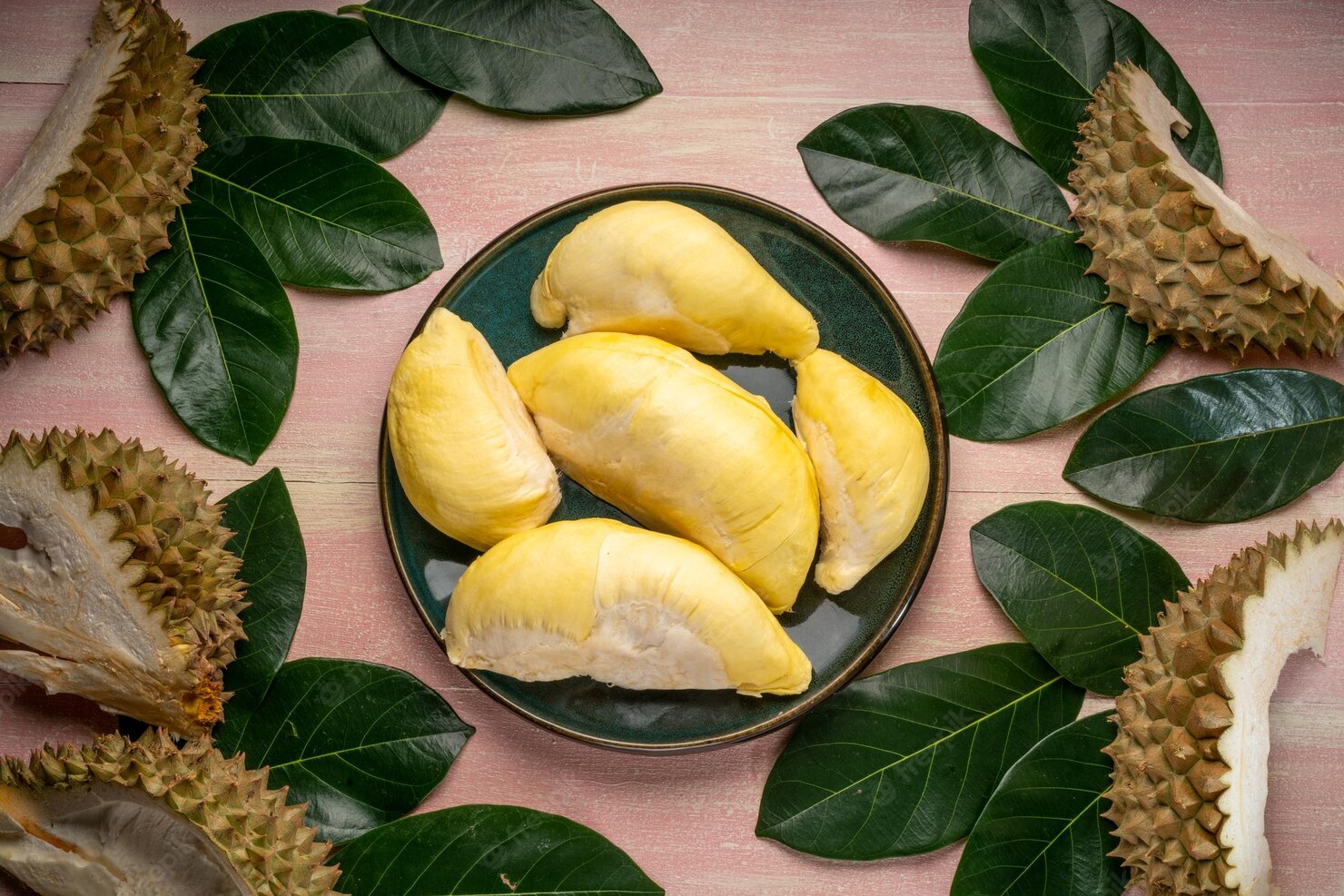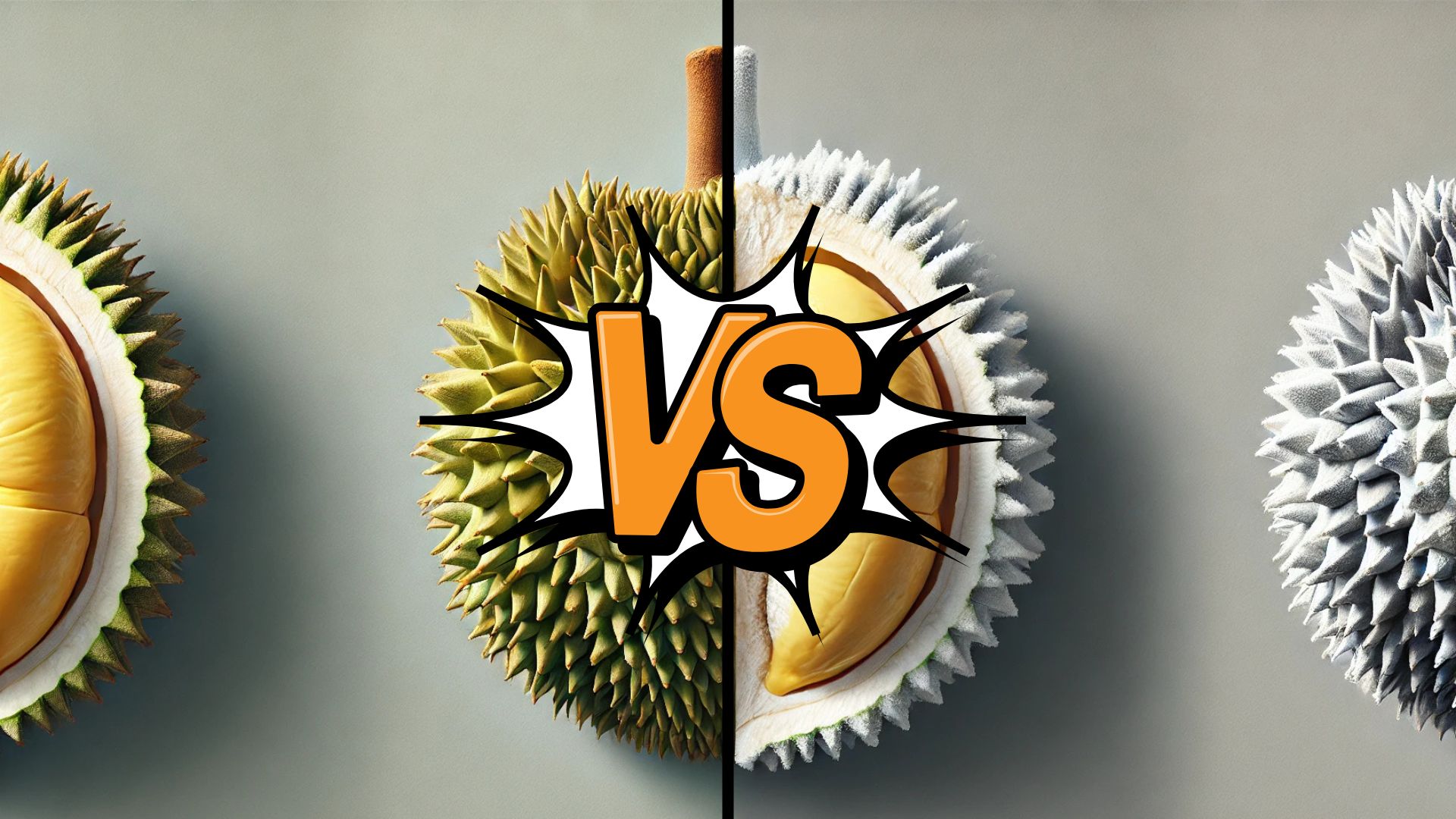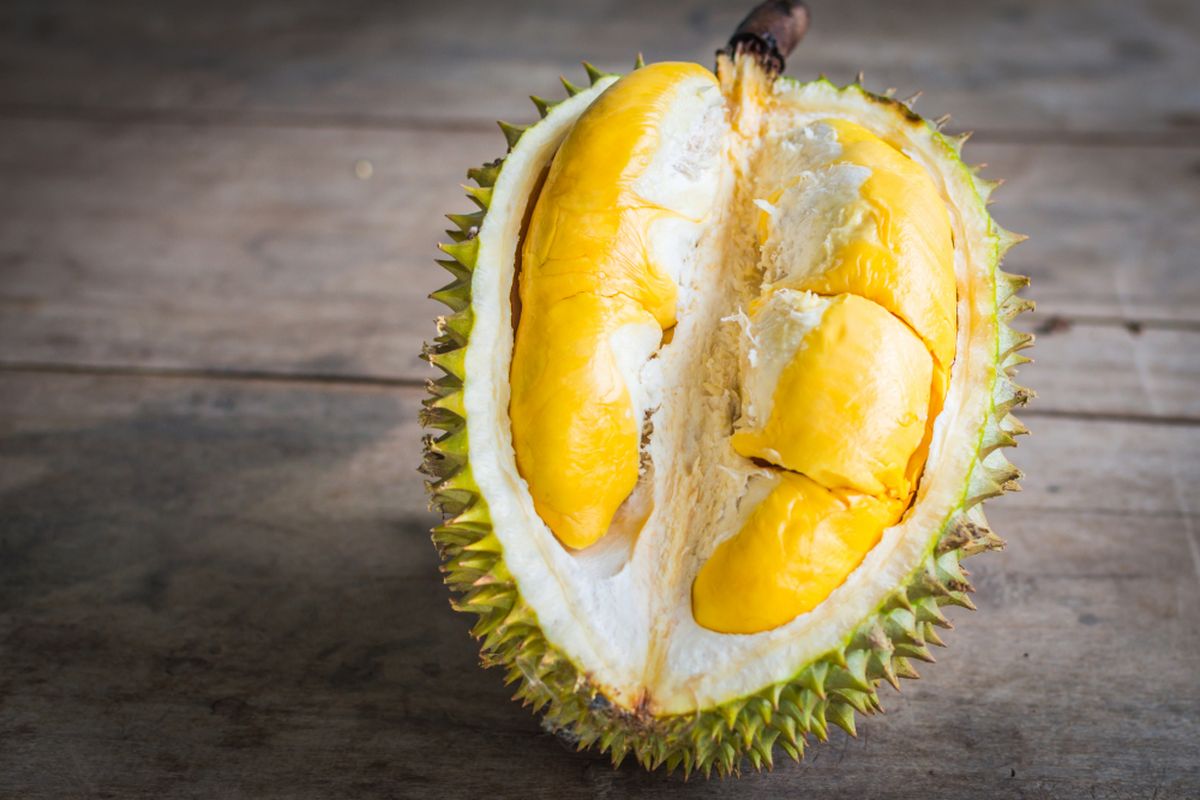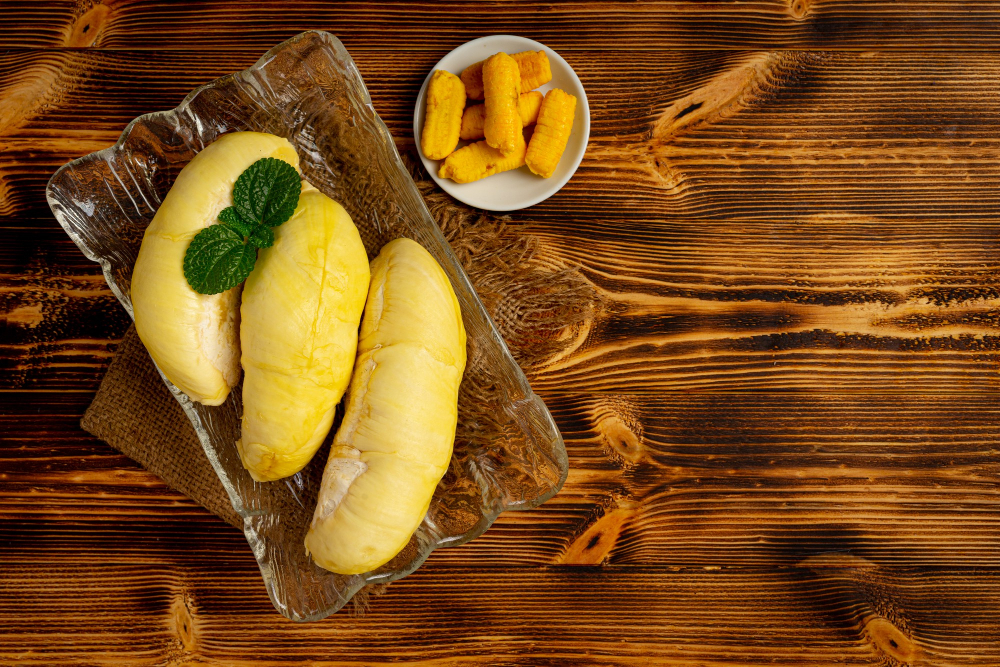
Why Durian is Heaty?
Durian is considered “heaty” because of its high calories, rich nutrients, and unique compounds that increase body warmth and energy.

Durian, the “King of Fruits,” is beloved for its creamy texture and complex flavor—yet its pungent aroma divides opinions. For those eager to try it, a common dilemma arises: should you buy fresh or frozen durian? As a food scientist with a decade of experience studying tropical fruits and collaborating with Southeast Asian farmers, I’ll break down the pros, cons, and best uses for each, backed by research and culinary expertise.
Fresh durian’s taste evolves across ripeness stages:
Underripe: Mild sweetness with grassy notes.
Peak Ripeness: Complex layers of caramel, vanilla, and a hint of bitterness.
Overripe: Fermented, alcoholic undertones (due to natural yeast activity).
Texture:
The flesh is custard-like and creamy when perfectly ripe, but becomes stringy or watery if overripe.
Aroma:
Volatile sulfur compounds (e.g., ethanethiol) create its infamous pungency, which intensifies with ripeness.
Flavor Changes:
Freezing mutes sulfur compounds, reducing odor intensity by ~30% (Food Chemistry, 2021). The sweetness remains intact, but subtle floral notes may diminish.
Texture Impact:
Ice crystals formed during freezing rupture cell walls, leading to a softer, less fibrous texture post-thawing. This is ideal for blending into smoothies but less satisfying for fresh consumption.
Culinary Versatility:
Frozen durian shines in cooked dishes:
Baking: Adds moisture to cakes and pastries.
Ice Cream: Creamier texture due to reduced ice formation (brands like Duria pre-churn puree for optimal consistency).
Thai Food and Travel shares:
“Freezing changes the texture of fruit and texture affects how one tastes. Freeze any of your favorite fruits and what happens? Would you like cantaloupe as well, or at all, after it has been frozen and thawed? The firm, smooth, custardy texture of durian is all but lost from freezing. It becomes soggy (under-ripe durian can have a slight crunchy texture mixed in) and the membrane surrounding the flesh, hardly noticeable in fresh durian, toughens.”
Key Nutrients:
Fresh durian is a nutrient-dense fruit, offering:
Durian is packed with essential nutrients that provide numerous health benefits. For a more in-depth breakdown of durian’s nutritional value, check out our guide on what nutrients durian has.
Bioactive Compounds:
Fresh durian is rich in tryptophan, a precursor to serotonin (the “feel-good” hormone), and sulfur-containing antioxidants like glutathione, which combat oxidative stress.
Research: Exposure to air can degrade nutrients
A study from Institute of Food Science and Technology (IFST) found that oxidation changes a fruit’s color and reduces its nutrient content. Vitamin C in fruits and vegetables oxidizes when exposed to air, decreasing over time.
Flash-Freezing Process:
Reputable brands use individual quick freezing (IQF) to lock in nutrients. The USDA notes that IQF preserves 90-95% of vitamins and antioxidants if frozen within 4 hours of harvest.
Nutrient Retention:
Fresh Durian:
Seasonal (peak May–August in Thailand/Malaysia). Outside Asia, it’s sold in specialty stores at 2-3x the cost due to airfreight and perishability.
Frozen Durian:
Available year-round in major supermarkets (e.g., Lotus) and online retailers (e.g., Shopee). Brands like Musang King and Mao Shan Wang dominate the premium market.
Fresh Durian:
Dehusking: Requires a cleaver and gloves (spikes are sharp!).
Storage: Refrigerate unopened for 2-3 days; consume within 24 hours once opened.
Frozen Durian:
Thawing: Defrost in the fridge overnight (prevents mushiness).
Portioning: Pre-sealed packs (e.g., 200g servings) reduce waste.
Frozen durian has a lower carbon footprint for international shipping due to reduced spoilage rates compared to fresh shipments.
You’re a Purist: The ritual of cracking open a durian and savoring its unaltered aroma is irreplaceable.
Hosting a Gathering: Fresh durian’s theatrical presentation enhances cultural dining experiences.
Health Priorities: Maximize vitamin C and enzyme intake (e.g., raw food diets).
Convenience Matters: Busy cooks appreciate ready-to-blend pulp for quick desserts.
Odor Sensitivity: Reduced aroma makes it apartment-friendly.
Bulk Recipes: Cost-effective for durian pancakes, cheesecakes, or durian coffee blends.
“Frozen durian is a smart choice for smoothie bowls—its softer texture blends seamlessly with yogurt and granola, and you avoid the hassle of dehusking.”
Visual Cues: Look for intact husks without cracks (prevents insect contamination).
Smell Test: A sweet, fruity aroma indicates ripeness; ammonia-like smells signal overripeness.
Picking the perfect durian requires a keen eye and a good nose. If you’re unsure, follow our step-by-step guide on how to choose a ripe durian for expert tips.
Packaging: Opt for vacuum-sealed bags (prevents freezer burn).
Certifications: Check for HACCP or ISO 22000 labels, ensuring safe processing.
Durian contains sulfites, which may trigger reactions in sensitive individuals.
Fresh durian offers an unrivaled sensory experience but demands effort and timing. Frozen durian, while less aromatic, delivers convenience, consistency, and year-round access. For optimal choice, prioritize fresh for special occasions or raw consumption. Opt for frozen for cooking, baking, or odor-sensitive environments. Always verify supplier credentials—look for ASEAN Food Safety certifications or USDA organic labels.

Durian is considered “heaty” because of its high calories, rich nutrients, and unique compounds that increase body warmth and energy.

The factory, which is equipped with modern facilities, is able to maintain the best quality of Frozen Durian Paste and Frozen Durian Pulp products to meet the high demand for durian in the Asian market, especially from Malaysia, Singapore, Hong Kong, Thailand and China.

The factory, which is equipped with modern facilities, is able to maintain the best quality of Frozen Durian Paste and Frozen Durian Pulp products to meet the high demand for durian in the Asian market, especially from Malaysia, Singapore, Hong Kong, Thailand and China.
Adding {{itemName}} to cart
Added {{itemName}} to cart